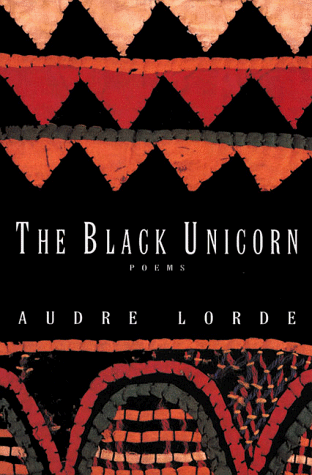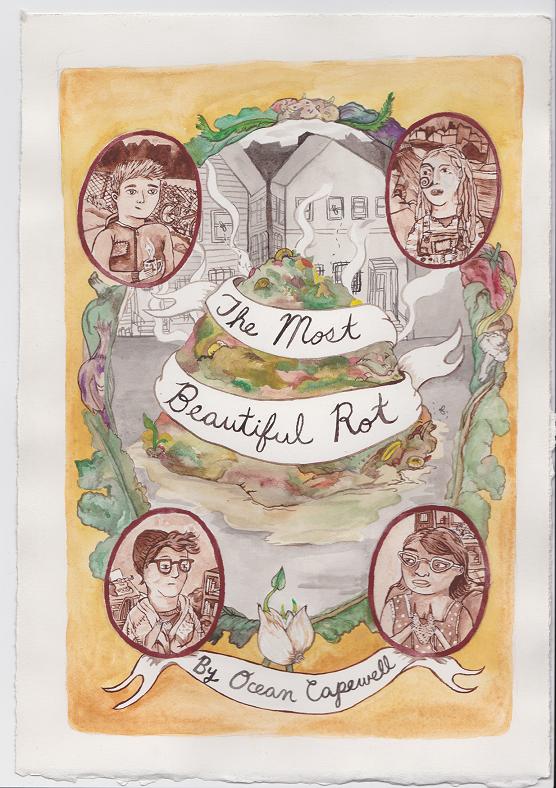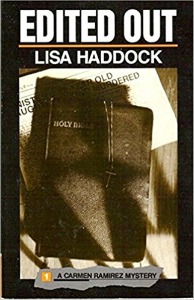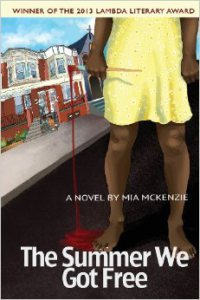Are you looking for a smart, accessible introduction to bisexual academic theory, history, and activism? Are you a bisexual/pansexual/omnisexual person who needs an anti-assimilationist kick in the pants? Are you a monosexual (gay or straight) person who wants to learn more about the bisexual people in your life? Look no further than Shiri Eisner’s Bi: Notes for A Bisexual Revolution. Although my feelings about this book are complicated, for the most part I am happy that it is out there and that bisexuals younger than myself have it as a resource! In particular, I think it’s a fantastic introduction to not only bisexuality but queer and feminist studies more generally. Eisner is great at defining key terms in no-nonsense language and succinctly summarizing complicated queer/feminist theories. You don’t need a background in queer or feminist studies or academia to understand this book, which I think is great for making it a manageable read for all sorts of people who wouldn’t ordinarily pick up something like this.
What I really loved about Bi was how Eisner put a lots of things about bisexuality and biphobia that I had experienced as both a lesbian and bi-identified woman into words. I had never taken the time to analyze some of this stuff, and some I had just never realized were manifestations of biphobia. Eisner dives right in in the early chapters and tackles such tricky topics as bisexual stereotypes, accusations that bisexuality ‘reinforces the gender binary’ and otherwise contributes to the dominant social order, myths that bisexuality doesn’t really exist, the fact that bi men are deemed gay whereas bi women are deemed straight, and bi people being accused of having access to heterosexual privilege. One of my favourite points that she made was that the sometimes positively-viewed assertion that ‘everyone is really bi’ is really the other side of the ‘bisexuality doesn’t exist’ coin. Both statements are trying to deny the validity of a bisexual orientation and the uniqueness of bisexual people.
I also really liked how she dealt with the issue of heterosexual privilege and the idea of passing as straight or gay. She writes, for example,
“The presumption that bisexuals experience oppression not as bisexual people but as ‘quasi gays and lesbians’ … divides bisexual identity into ‘gay’ and ‘straight’ parts [and] presumes that bisexuals are only oppressed by heterosexism inasmuch as they live a ‘gay’ life and that they gain privileges inasmuch as they live a ‘straight’ life.”
Eisner also brings up a really important point about the gay / straight-washing that happens so often to bi people. Since I’ve been paying attention, I can’t count the number of times I’ve seen bi celebrities as well as regular people referred to as either gay or straight. Like, I had no idea Alan Cumming was actually bi and I’m pretty sure I’ve seen him referred to as gay a million times. Recently, when bisexual activist Robyn Ochs (whose wonderful definition of bisexuality I’ll include farther down) was mentioned in a mainstream newspaper celebrating her marriage with a same-sex partner, she was called a lesbian—this is a woman whose career is built on fighting that exact kind of erasure. So this book was eye-opening for me in a lot of ways, and in particular about the monosexist assumptions that led me to feel like I had to pick lesbian or straight. A lot of what I read feels empowering and revolutionary, just like the title promised!
One of the things I didn’t love about this book was Eisner’s radical political stance. I mean, I agreed theoretically with a lot of the points that she made, but often anarchist/radical politics feel naïve and limiting for me. I want to say, okay, yes, dismantling the entire structure and ways of thinking that our societies are founded on is great in theory, but what can we actually practically do to make things better for people who are getting a shit deal right now? I heard some echoes in Eisner’s writing of other things I’ve heard in radical queer circles, like the ‘subverting gender binaries’ shtick . I’m sick and tired of reading about whether this or that identity subverts gender binaries or not. It’s getting old. I’m suspicious of this especially because it’s often evoked (not in Eisner’s case) in an anti-feminine context.
Eisner’s section on men and bisexuality is definitely the weakest section. Honestly, a bi man should probably have written this chapter—I would have been really interested to hear that perspective, but Eisner’s anti-science tirade about the research that’s been done on bi men wasn’t interesting or illuminating to me. In fact, in her book Excluded, Julia Serano points out that a lot of feminism’s knee-jerk anti-science is detrimental and misguided. The section on bisexuality and racialization could have used a lot more variety too. I get that Eisner is relying on her own experiences, but some references to other racialized people, at least for further reading, would have been nice.
All of that said, I still really recommend this book. It taught me a lot and made me think a lot about bisexuality and biphobia in many ways that I hadn’t before. It’s a great starting point for discussion—it will get you thinking and talking and thinking some more! I want to end with Robyn Ochs’s definition of bisexuality, which Eisner introduced me to:
“I call myself bisexual because I acknowledge that I have in myself the potential to be attracted-romantically and/or sexually-to people of more than one sex and/or gender, not necessarily at the same time, not necessarily in the same way, and not necessarily to the same degree.”
Eisner praises Ochs for the inclusiveness and reassuring quality of this definition. I think Eisner’s insistence on the messiness and complication of bisexuality is similarly reassuring: she writes that these qualities are not something to apologize for but rather something to value.




